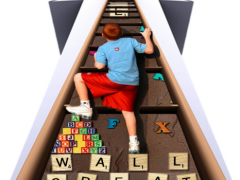The Magic Ladder is a system of tools (free to schools and families) that has the potential to fundamentally improve the learning trajectories of more than half of the children in the U.S.


The Magic Ladder is a system of tools (free to schools and families) that has the potential to fundamentally improve the learning trajectories of more than half of the children in the U.S.
When a child is shame-averse to expressing what they are reading, they are, necessarily, less able to learn to read.
This is an important step towards better understanding the underlying processing issues involved in ‘reading improficiency’ (affecting 6 in 10) as well as ‘dyslexia’ (affecting 1 in 10)
Buying the ‘right’ program and training teachers to use it is not only insufficient, it misorients a school system’s learning.
Research: mental health effects of feeling chronically improficient in the skill areas most important to success in school
“CHANGING TRAJECTORIES” is the final chapter of Phase I of COTC and includes our suggestions and tips for improving the learning trajectories of struggling readers.
“THE BRAIN’S CHALLENGE” is the centerpiece of the Children of the Code project and illustrates the main challenge underlying learning to read difficulties in the English language.
The Children of the Code site has been upgraded to much higher quality videos that can be run on your tablets, smartphones, etc. ++ Two new chapters: “What is Reading?” and “Paradigm Inertia”
We are raising funds to give our DVD sets to the teachers and literacy volunteers that need it the most but can afford it the least. Help us!
What does it mean that most of our children are CHRONICALLY IMPROFICIENT in the skill areas most critically important for success in school?
